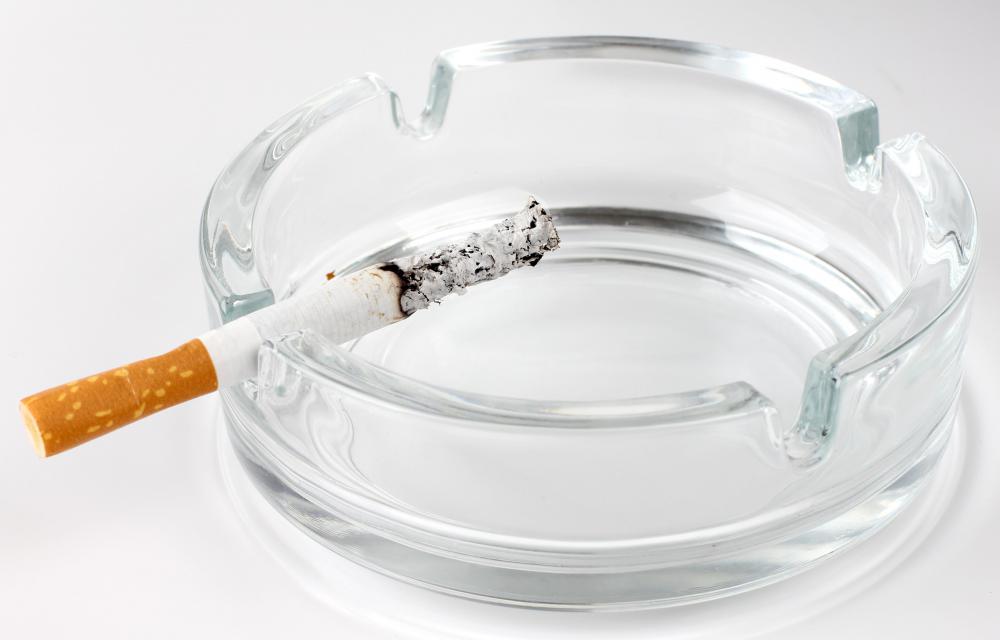At WiseGEEK, we're committed to delivering accurate, trustworthy information. Our expert-authored content is rigorously fact-checked and sourced from credible authorities. Discover how we uphold the highest standards in providing you with reliable knowledge.
What is a Collapsed Lung?
A collapsed lung occurs when air builds up between the chest wall and the lung. When this happens, the lung will not be able to expand, and breathing will become painful. The medical term for this condition is a pneumothorax.
A lung usually collapses as a result of a direct injury to the chest, but on some occasions, the condition can appear without cause. Injuries to the chest may result in broken ribs or a punctured lung. Damage without injury may include asthma, pneumonia, and other diseases of the lung. Cigarette smoking has also been linked to the condition.

The symptoms of a collapsed lung include a shortness of breath and severe chest pains. There may also be a continual severe cough, and pain may be felt in the shoulder muscles. The sufferer’s pulse may become rapid, and veins may protrude from the neck.
If these symptoms appear, then a doctor should be consulted immediately. A doctor should be called even if the symptoms are only temporary. The pain may have serious underlying causes.

A doctor must conduct a number of tests to diagnose a collapsed lung. These include x-rays and, if necessary, a computed tomography (CT) scan of the chest. A pneumothorax can be missed by an x-ray alone. The symptoms can be eased in the short term by pressing a pillow against the chest wall. This will alleviate the pain if the collapse was caused by injury to the chest and ribs.

A more severe type of collapsed lung is called a tension pneumothorax. With a tension pneumothorax, air will begin to build up under pressure and can cause severe damage to the cardiovascular area. Severe low blood pressure will occur, and if not treated, the condition can be fatal.
Treatment for a severe collapsed lung consists of the removal of the trapped air through a needle inserted into the chest area. The needle is attached to a tube, and decompression removes the air from the chest cavity. A simple pneumothorax may also be treated in this way.

Once the lung has been treated, ongoing visits to the doctor are necessary. X-rays and physical examinations will continue until the doctor has given the all clear. If the collapsed lung was not the result of injury, there is a 50% chance that it will recur.
AS FEATURED ON:
AS FEATURED ON:














Discussion Comments
Nobody should smoke period, but especially not those with respiratory problems. Quitting smoking can only be beneficial to him. There is literally no down side to him quitting inhaling toxic poisons into his body. I speak as an ex-smoker and truly believe that smoking should be banned outright. It's a horribly sickening drug that kills millions and has hundreds of millions addicted and suffering ill health as a direct result of their addiction.
My daughter, who is 50 days old, has come out with spontaneous pneumothorax and during the course of diagnosis, by taking a CT scan we found there are some air pockets in between her chest and lungs? What could it be? Will it be harmful for my little one's life?
My two year old nephew is in the hospital because his lungs are collapsing. could it kill the little boy?
A 16 year old girl had a baby and blood pressure was up and now her lung has collapsed. What caused her lung to collapse I wonder.
My brother got a collased lung and he smokes. Will the stoppage of smoking help his problem?
Post your comments